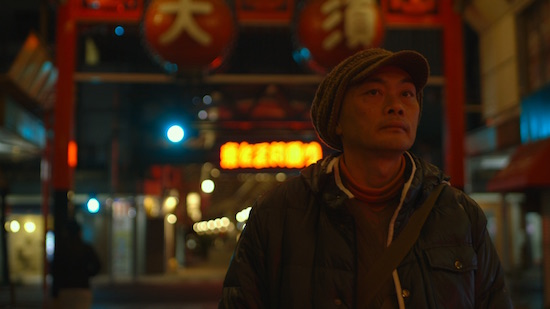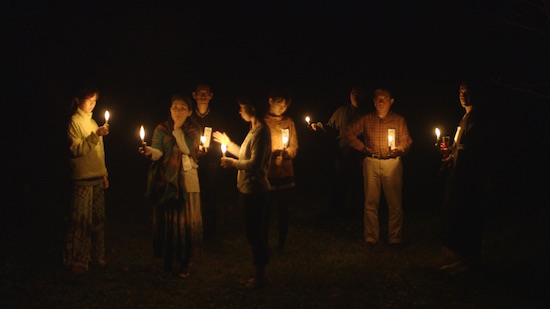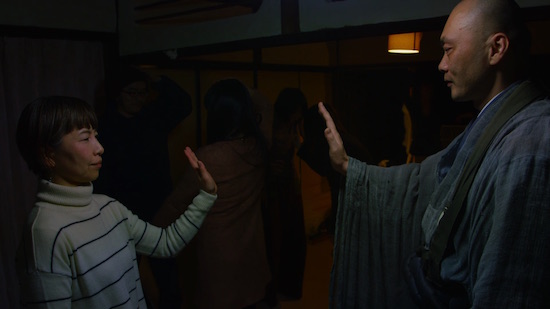A Beautiful Soul
The subject of Lana Wilson’s documentary The Departure, Ittetsu Nemoto is a fascinating individual. The former rebel-turned-Buddhist priest has made it his life’s work to personally help people who want to kill themselves. Because he cannot turn anyone down when they call or text him—and because suicide is rampant in Japan—the 44-year old’s own health has been terribly compromised. This impressionistic portrait of a heroic yet flawed character is meditative and often quite beautiful, as befitting its extraordinary subject and his environment.
At the monastery where he lives with his wife and young children, we see Nemoto welcome visitors to the Departure, a retreat specifically geared to help people who are contemplating suicide. He does this by having them “experience” death; we see a small part of the process, which involves writing down things they’re leaving behind and crumpling up these pieces of paper one by one until nothing is left. The idea is to find something worth living for. Later in group discussions, the participants discuss their feelings. It’s interesting that so many utterly despondent people have allowed themselves to be filmed. On the other hand, suicide has a long tradition of honor (kamikaze pilots, the ritual of seppuku) in Japan, so there’s probably less shame attached to it. This may make people more open about their feelings, but also guarantees that Nemoto is seriously overworked.
The film shows him riding his motorcycle to meet with the various people who call or text his personal “hotline,” including a visit with a young woman whose grandfather thinks she should be “stronger” and a series of interactions with a man who is depressed over losing custody of his children. Nemoto is a comforting presence, listening carefully and offering various ideas to guide them through their crises, without judging or promising easy solutions. With groups, he uses art, movement, theater games and other forms of expression; as he says, there is no one right way to help. After each encounter with a potential suicide, he is clearly drained, but, as he explains in voice-over, he feels responsible for these people. His calendar is booked solid and he won’t turn anyone away.
Later, his exhaustion takes on deeper meaning as we see him undergoing tests in a hospital. Though relatively young, he has major cardiac and pulmonary issues, exacerbated by the stress of his work. The irony of the fact that he’s killing himself in a way is not lost on us or on him. At one point, he wonders if he is a hypocrite.
We learn about the people in his early life who committed suicide, and how this led to his current mission. He also talks about his rebellious youth, which involved playing in rock bands, heavy partying and picking fights. A near-fatal motorcycle accident at age 24 led to both his marriage and the priesthood. Though he has clearly evolved in a big way, he still drinks and goes out dancing in clubs—which seem to offer a release from his grueling work, even as they contribute to his deteriorating health. Though his wife pleads with him to “stay healthy for another 20 years” for the sake of his son, she seems resigned to her husband’s way of life.
The Departure offers no easy answers or platitudes, just an indelible portrayal of someone who gives 100% no matter what the cost. Though it is frustrating to watch such a valiant human being deplete himself, it’s inspiring to witness his selflessness. In these egocentric times especially, Ittetsu Nemoto is the rarest of gems.
The Departure opens on Friday, Oct. 13, at the Metrograph Theater.
—Marina Zogbi




